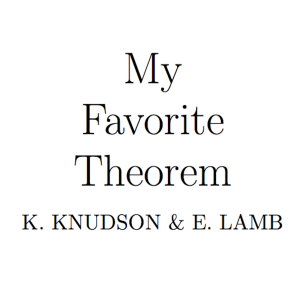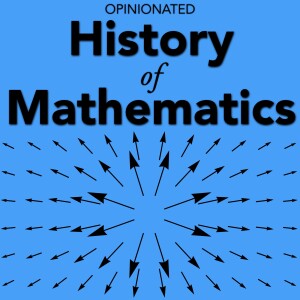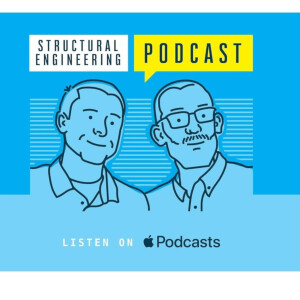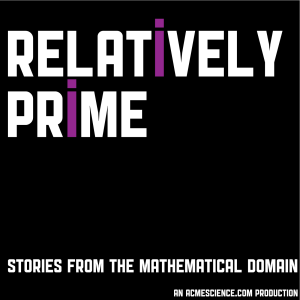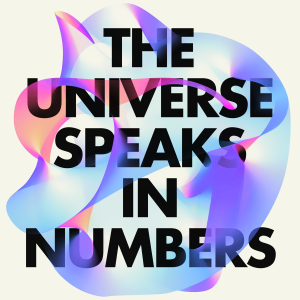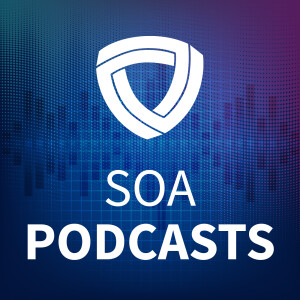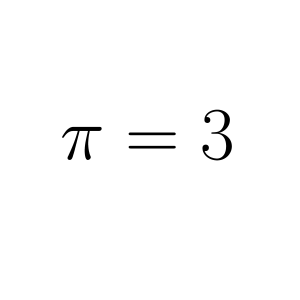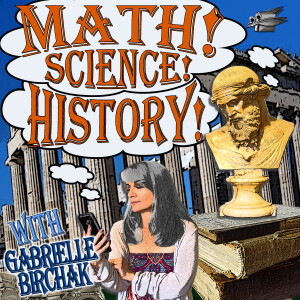

Math! Science! History!
https://mathsciencehistory.libsyn.com/rssEpisode List
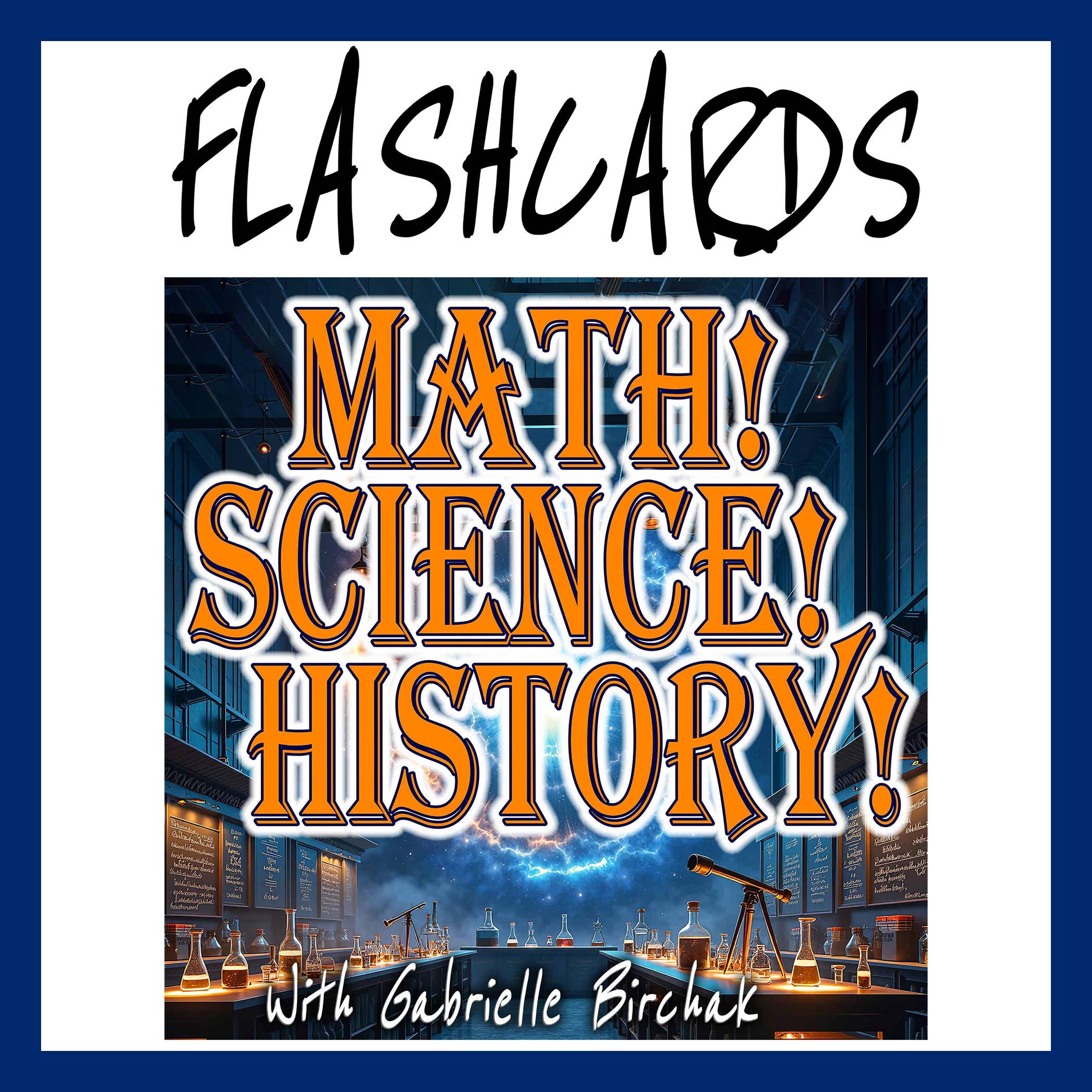
FLASHCARDS FRIDAY! Just say NO to Melanoma
In this Flashcard Friday episode, Gabrielle dives into the surprising history and science of sunblock. From ancient Egypt’s jasmine oils to modern SPF 50 sprays, discover how sunscreen evolved and why it’s one of the best defenses against deadly melanoma. Gabrielle shares the statistics on skin cancer, explains how sunblock works, and gives you simple tips to stay protected. With her favorite motto, “Just say NO to melanoma,” she’ll leave you ready to face the sun smartly. 3 Things Listeners Will Learn: - The fascinating history of sunblock, from ancient remedies to modern formulations. - How sunscreen protects the skin and how to use it correctly for maximum safety. - Eye-opening facts about melanoma risk, survival rates, and prevention through sun protection. Resource Links American Cancer Society: Melanoma Skin Cancer Overview All About Sunscreen: Why You Need It. How it Works for You Melanoma Treatment (PDQ®)–Patient Version Visit us! Explore more on our website: mathsciencehistory.com ☕ Support the Show! We are sponsored by Coffee!! PayPal Let’s Connect! www.Instagram.com/math.science.history https://bsky.app/profile/mathsciencehistory.bsky.social https://www.linkedin.com/company/math-science-history/ https://www.threads.com/@math.science.history Enjoying the Podcast? If you love Math, Science, History, here’s how you can help: Leave a review – It helps more people discover the show! Share this episode with friends & fellow history buffs! Subscribe on your favorite podcast platform Checking out our merch: https://www.mathsciencehistory.com/the-store Music: All music is public domain and has no Copyright and no rights reserved. On Matters of Consequence from The Little Prince by Lloyd Rodgers Until next time, carpe diem!

REPOST: Pascal's Higher Power
Episode Overview In this special re-release, we revisit the life and mind of Blaise Pascal, a mathematician, physicist, inventor, philosopher, and theologian who left a lasting impact on multiple disciplines. From his early genius in geometry to his pioneering work in probability theory, Pascal was a thinker who never stopped exploring the boundaries between logic and faith. In this episode, Gabrielle Birchak explores how Pascal’s scientific brilliance intersected with his spiritual journey, shedding light on the man who helped shape modern science, mathematics, and religious philosophy. Whether you're hearing this episode for the first time or giving it a second listen, Pascal's story continues to resonate through the centuries. 3 Things You Will Learn How Pascal’s early work in conic sections and projective geometry led to “Pascal’s Theorem.” Why his collaboration with Fermat on probability theory is considered the foundation of modern decision science. How Pascal reconciled science and religion through his writings, including Pensées and Pascal’s Wager. Resources & References Read the blog: Pascal’s Higher Power Stanford Encyclopedia of Philosophy – Blaise Pascal Khan Academy – Pascal’s Triangle and Applications 🔗 Explore more on our website: mathsciencehistory.com 📚 To buy my book Hypatia: The Sum of Her Life on Amazon, visit https://a.co/d/g3OuP9h 🌍 Let’s Connect! Website: mathsciencehistory.com Bluesky: https://bsky.app/profile/mathsciencehistory.bsky.social Instagram: https://www.instagram.com/math.science.history 🎧 Enjoying the Podcast? If you love Math, Science, History, here’s how you can help:🌟 Leave a review! It helps more people discover the show!📢 Share this episode with friends & fellow history buffs!🔔 Subscribe on your favorite podcast platform ☕ Support the Show: Coffee!! PayPal 🛍 Checking out our merch: https://www.mathsciencehistory.com/the-store 🎵 Music: All music is public domain and has no Copyright and no rights reserved. Selections from The Little Prince by Lloyd Rodgers Until next time, carpe diem!

FLASHCARDS FRIDAY! Charles Darwin: The Lost Boy
In this Flashcard Fridays episode of Math! Science! History! Gabrielle Birchak takes listeners on a journey aboard the HMS Beagle with a young, seasick Charles Darwin. This wasn’t just a travel story, it was a five-year working holiday that would ultimately change the course of science. Through field observations, curiosity, and a bit of chaos, Darwin unknowingly gathered the seeds of his future theory of evolution. From the Galápagos Islands to fossil beds in South America, Gabrielle uncovers how a break from academia became one of the most pivotal moments in scientific history. Perfect for summer listening, this episode is a reminder that the best ideas sometimes come when we step away from the desk. THREE KEY TAKEAWAYS Why Darwin’s voyage aboard the HMS Beagle was never meant to be a scientific breakthrough—but became one anyway. How observation, curiosity, and a break from routine led to one of the most powerful theories in science. What Darwin’s journey teaches us about creativity, fieldwork, and the value of stepping outside your comfort zone. Resources & Further Reading: Darwin Online – The Complete Works of Charles Darwin Smithsonian Magazine: Darwin’s Life on the Beagle Galápagos Conservancy – Science and Conservation Explore more on our website: mathsciencehistory.com To buy my book Hypatia: The Sum of Her Life on Amazon, visit https://a.co/d/g3OuP9h Let’s Connect! Website: mathsciencehistory.com Bluesky: https://bsky.app/profile/mathsciencehistory.bsky.social Instagram: https://www.instagram.com/math.science.history If you love Math, Science, History, here’s how you can help:🌟 Leave a review – It helps more people discover the show!📢 Share this episode with friends & fellow history buffs!🔔 Subscribe on your favorite podcast platform ☕ Support the Show: Coffee!! PayPal 🛍 Checking out our merch: https://www.mathsciencehistory.com/the-store 🎵 Music: All music is public domain and has no Copyright and no rights reserved. Selections from The Little Prince by Lloyd Rodgers Until next time, carpe diem!
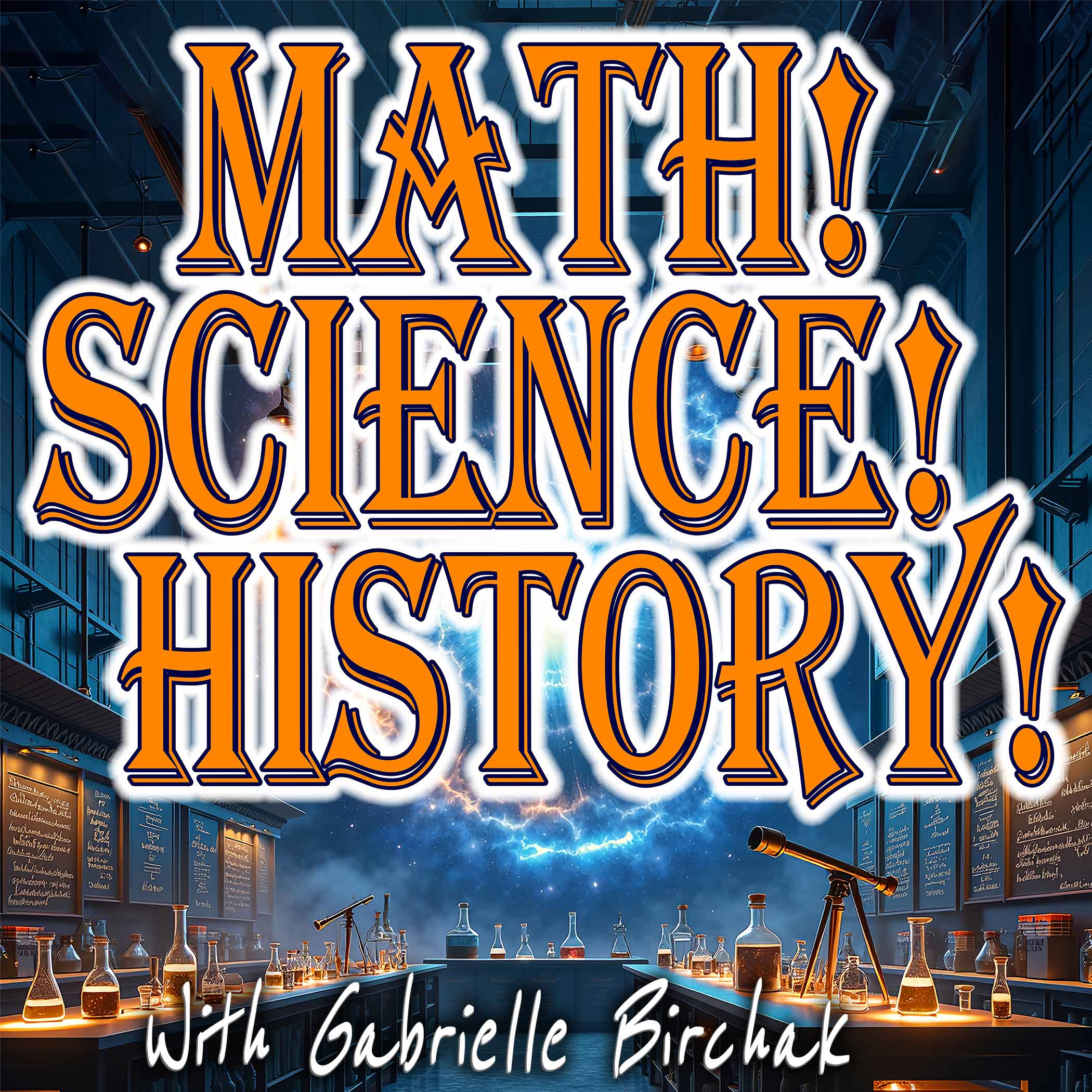
Leonardo da Vinci: The Renaissance Genius Unmasked
Leonardo da Vinci is often remembered for the Mona Lisa and The Last Supper—but he was so much more than a painter. In this episode, we uncover the Renaissance icon’s groundbreaking work in engineering, anatomy, and invention, as well as explore the quieter truths of his personal identity. We ask a powerful question: What might the world look like if everyone—regardless of gender or sexuality—could live and create as freely as Leonardo did, without fear of judgment? Join us as we journey through Leonardo’s notebooks, his unconventional relationships, and the brilliance he left behind—not just in paint, but in thought. THREE KEY TAKE-AWAYS How Leonardo’s engineering and scientific contributions shaped modern innovations—from anatomy to flight. Insight into Leonardo’s personal life, including his relationships with Salaì and Melzi, and what modern historians believe about his sexuality. A broader question of what happens when people are allowed to live and create authentically—without fear of shame or suppression. Resources & References Walter Isaacson’s biography of Leonardo da Vinci: https://www.simonandschuster.com/books/Leonardo-da-Vinci/Walter-Isaacson/9781501139154 Leonardo da Vinci’s notebooks (Codex Atlanticus): https://www.leonardodigitale.com Museum of Science, Leonardo DaVinci Leonardo da Vinci’s mother was a slave, according to new research Da Vinci's mother was an enslaved teenager trafficked to Italy, new documents suggest Leonardo’s letter to Ludovico Sforza 10 of Leonardo da Vinci’s Most Important Inventions Leonardo daVinci – by Walter Isaacson The Victoria and Albert Museum – Leonardo daVinci’s Codices Explore more on our website: mathsciencehistory.com To buy my book Hypatia: The Sum of Her Life on Amazon, visit https://a.co/d/g3OuP9h Let’s Connect! Website: mathsciencehistory.com Bluesky: https://bsky.app/profile/mathsciencehistory.bsky.social Instagram: https://www.instagram.com/math.science.history If you love Math, Science, History, here’s how you can help:🌟 Leave a review – It helps more people discover the show!📢 Share this episode with friends & fellow history buffs!🔔 Subscribe on your favorite podcast platform ☕ Support the Show: Coffee!! PayPal 🛍 Checking out our merch: https://www.mathsciencehistory.com/the-store 🎵 Music: All music is public domain and has no Copyright and no rights reserved. Selections from The Little Prince by Lloyd Rodgers 🎵 Audio: Mixed by David Aviles Until next time, carpe diem!

FLASHCARDS FRIDAYS! Ancient Vacations
Episode Overview: Did people in antiquity ever go on vacation? The short answer is yes—and the long answer is a fascinating journey through Roman villas, Greek festivals, Byzantine retreats, Tang dynasty poetry, and sacred pilgrimages. In this Flashcard Friday episode, Gabrielle Birchak uncovers how the privileged, the pious, and the poetic found ways to take breaks, explore new places, and seek leisure across 1,400 years of ancient history. From Pliny the Younger’s coastal villa to early travel writing in Baghdad, we’ll explore how the idea of “getting away” is as old as civilization itself. Three Things Listeners Will Learn: 1. How ancient Romans and Greeks viewed leisure and travel. 2. How pilgrimage functioned as early tourism across Christian and Islamic worlds. 3. What writings from antiquity reveal about humanity’s timeless desire to escape daily routines. Explore more on our website: mathsciencehistory.com To buy my book Hypatia: The Sum of Her Life on Amazon, visit https://a.co/d/g3OuP9h Let’s Connect! www.Instagram.com/math.science.history https://bsky.app/profile/mathsciencehistory.bsky.social https://www.linkedin.com/company/math-science-history/ https://www.threads.com/@math.science.history Enjoying the Podcast? If you love Math, Science, History, here’s how you can help: Leave a review – It helps more people discover the show! Share this episode with friends & fellow history buffs! Subscribe on your favorite podcast platform ☕ Support the Show! We are sponsored by Coffee!! PayPal Checking out our merch: https://www.mathsciencehistory.com/the-store Music: All music is public domain and has no Copyright and no rights reserved. On Matters of Consequence from The Little Prince by Lloyd Rodgers Until next time, carpe diem!
You may also like
Create Your Podcast In Minutes
- Full-featured podcast site
- Unlimited storage and bandwidth
- Comprehensive podcast stats
- Distribute to Apple Podcasts, Spotify, and more
- Make money with your podcast

